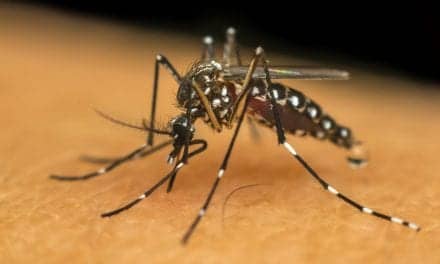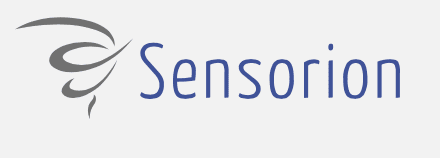Opinion | Karl’s Blog
Editors and readers love rankings, but for different reasons. Editors like rankings lists because they draw readers by the scores and can elicit strong emotions; readers like them because they’re simple reference points and also great opportunities to prove why they’re smarter than the list-makers. Case in point: last weekend, my wife showed me a list of the 100 great novels every bibliophile should read, and—largely because I hadn’t read half of them, and a good deal of my favorites were omitted—I immediately condemned it as an uninformed list by a bunch of no-brain ninny scholars and editors… So, take the following with a grain of salt.
On July 12, the US News & World Report MONEY website ranked Audiology as the 29th best health care job—dead last on this particular list of 29 healthcare professions. It listed the audiologists’ median salaries as $75,920, with a 8.3% unemployment rate, and an alarmingly low 1,300 projected job openings from 2016 to 2026. The upper quartile of audiologists made $93,590 while the lowest quartile made $62,370. The job items of “flexibility,” “stress level,” and “upward mobility” were all ranked as “average” compared to other health care jobs.
Some career ranking sites placed “Audiologist” near the top of their lists only a few years ago. For example, CareerCast.com ranked Audiology as its 2nd best job in 2015 and as its 8th least stressful job in 2016—albeit with the latter eliciting howls of protest from some members of the audiology profession. What happened?
The current report says, “The Bureau of Labor Statistics projects 20.7 percent employment growth for audiologists between 2016 and 2026. In that period, an estimated 3,100 jobs should open up.” On its website, the Bureau says there were 14,800 audiologists employed in 2016 with a job outlook of 21% (much faster than average) from 2016-26. The total employment change is listed as 3,100.
What the employment statistics seemingly miss are the incredible number of hearing care offices, networks, and hearing aid manufacturers currently looking for skilled professionals, and possibly the alarming number of professionals exiting the field. Ian Windmill, PhD, and Barry Freeman, PhD, published a paper in 2013 showing that “the number of persons entering the field will have to increase by 50% beginning immediately” to fulfill the future demand of hearing-impaired consumers. Dr Freeman, in a landmark article published in the Nov/Dec 2009 edition of Audiology Today, estimated a total of 16,095 licensed audiologists and 9,050 licensed hearing aid specialists. My personal opinion is we could probably use 3,100 audiologists and hearing aid specialists in the work force right now. One might even argue that the shortage of professionals is an existential threat to our field. Regarding salaries, ASHA recently published a survey showing that the annual median salary of an audiologist in 2018 was $80,000 to $83,843, depending on if they were employed in a clinical services or academic setting.
The top-five jobs in US News & World Report’s list were Physician Assistant ($104,860 salary with 39,600 projected jobs), Dentist ($165,120, 25,700 jobs), Nurse Anesthetist ($165,120, 6,800 jobs), Orthodontist ($208,000, 1,300 jobs), and Nurse Practitioner ($103,880, 56,100 jobs).
Among professions often compared with Audiology, the profession of Speech-language Pathologist came in 11 spots above audiologist at #18 with a median salary of $76,610 and 25,900 projected jobs, while Optometrist ($110,300, 7,200 jobs) came in at #20, and Chiropractor came in at #24 ($68,640, 5,900 jobs).
As a side-note, only a day before the publication of the above rankings, the website CollegeTuitionCompare ranked its top-10 comparison of audiology academic programs as follows:
- Vanderbilt University
- University of Iowa (Iowa City)
- University of North Carolina-Chapel Hill
- The University of Texas-Dallas
- University of Washington-Seattle
- Washington University-St Louis
- University of Florida (Gainesville)
- Northwestern University (Evanston, Ill)
- University of Pittsburgh
- University of Kansas (Lawrence)
The website stated: “Vanderbilt University ranked first in the Best Audiology Colleges and University of Iowa and University of North Carolina at Chapel Hill are following it in the ranking. The average undergraduate tuition & fees of Best Audiology Colleges is $11,301 for state residents and $38,572 for out of state students in academic year 2018-2019. For graduate programs, the 2019 average tuition & fees of the schools are $14,437 for state residents and $31,622 for out of state students. The average acceptance rate is 44.70% and the average graduation rate is 83% at the Best Audiology Colleges.” For the full list of audiology colleges, visit: https://www.collegetuitioncompare.com/best-schools/Audiology/
I will leave out a detailed discussion of the cost of an audiology education versus ROI/salary. On this subject, I admit that Audiology would/should rank lower on any such list of professions. This is a problem several in our field have brought up, and it still requires greater professional attention. According to the ASHA survey (p 8), the median student debt for audiologists who were clinical service providers age 30 or younger was $100,000. Particularly, when you compare the ROI (ie, average earnings divided by educational costs) between those doctoral professions which are largely classified as “LLP” versus masters degree professions which are largely classified as “allied health” professions, Audiology does not fare well. In fact, it has been argued that Audiology has a doctoral degree (AuD) cost on par with Optometry, with earnings more on par with the masters degree level (MS/MA) allied health fields.
However, even given this—as well as the looming uncertainties surrounding OTC/DTC hearing aid regulations, blended distribution models, app-based and telehealth solutions, etc—it remains my opinion the US News & World Report MONEY website (and the US Bureau of Labor statistics) is vastly underestimating the number of highly qualified hearing care professionals needed in today’s labor market, as well as for the future—whatever it may hold.
Karl Strom is editor of The Hearing Review and has been reporting on hearing healthcare issues for over 25 years.





